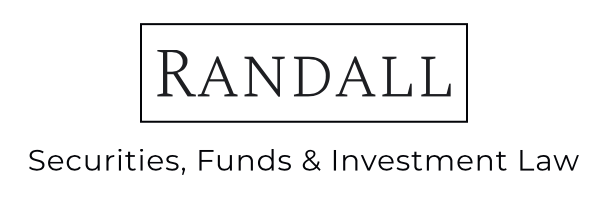SEC Filing Requirements for Publicly Traded Companies in the United States
The Securities and Exchange Commission (SEC) mandates extensive filing requirements for publicly traded companies under U.S. law. These requirements are grounded in federal statutes, primarily the Securities Act of 1933 and the Securities Exchange Act of 1934, as well as the corresponding SEC regulations. Below is a concise summary of key requirements, case law, and statutory obligations that publicly traded companies face in the U.S. Keep in mind, it’s essential to file the Key Filings mentioned below to avoid penalties, fines, and other problems from the SEC and other state regulators.
Statutes and Regulations:
Securities Act of 1933: Requires companies to file a registration statement (Form S-1 or others) when offering securities to the public. The purpose is to provide investors with financial and other significant information about securities offered for public sale and prohibit deceit, misrepresentations, and fraud.
Key Provision: Section 5 prohibits the sale of securities without an effective registration statement.
Securities Exchange Act of 1934: Governs ongoing reporting obligations for publicly traded companies after their securities are publicly sold. It mandates regular filings to ensure transparency and protect investors from fraudulent practices.
Key Filings:
Form 10-K: Annual comprehensive report providing a summary of a company's financial performance, business risks, and financial condition.
Form 10-Q: Quarterly financial report.
Form 8-K: Report of unscheduled material events or corporate changes.
Proxy Statements: Filed with Form DEF 14A to disclose important matters to shareholders, especially for voting on corporate matters.
Regulation S-K and S-X: These regulations provide detailed guidance on disclosure requirements in SEC filings, including financial statement requirements and specific line-item disclosures.
Sarbanes-Oxley Act of 2002 (SOX): Introduced after the Enron scandal, SOX imposes stricter financial disclosures, including requirements for internal controls and CEO/CFO certification of reports (Sections 302 and 404).
Case Law:
TSC Industries, Inc. v. Northway, Inc., 426 U.S. 438 (1976): Defined "materiality" in the context of securities disclosure, establishing that a fact is material if there is a substantial likelihood that a reasonable investor would consider it important in making an investment decision.
Basic Inc. v. Levinson, 485 U.S. 224 (1988): Expanded on the materiality standard to include speculative information, establishing that companies must disclose material information even if it relates to uncertain future events.
SEC v. Texas Gulf Sulphur Co., 401 F.2d 833 (2d Cir. 1968): The court held that publicly traded companies must make timely disclosure of material non-public information to prevent insider trading and ensure market fairness.
Lorenzo v. SEC, 139 S. Ct. 1094 (2019): The Supreme Court held that individuals who disseminate false or misleading statements with intent to defraud can be held liable under SEC rules, even if they didn’t make the statements themselves.
The SEC's filing requirements are designed to provide transparency and maintain market integrity by ensuring that investors have access to relevant and timely information about publicly traded companies. The legal framework established by the Securities Act of 1933, the Securities Exchange Act of 1934, and subsequent regulations mandates detailed and periodic disclosures. The case law emphasizes the importance of materiality, meaning that companies must disclose information that could significantly impact investors' decisions. Failure to comply with these filing requirements can result in legal consequences, including enforcement actions by the SEC and lawsuits by shareholders.
Publicly traded companies are subject to rigorous SEC filing requirements aimed at protecting investors through transparency and disclosure of material information. Companies must adhere to periodic reporting requirements and ensure compliance with laws designed to prevent fraud, including strict penalties for misstatements or omissions. The legal framework emphasizes timely and accurate disclosure, as well as the materiality of information provided to investors.
Randall & Associates is here to assist you if you need help filing the required forms and paperwork. Call us today for a free consult.
Randall & Associates works closely with our clients to determine which exemption is best for their specific fundraising needs. Other exemptions that may work include Regulation A offerings or Regulation CF offerings. In any case, raising money the right way is crucial for successful fundraising and to avoid penalties and legal liability with the SEC or state securities regulators.
If you are considering raising money for your business or starting a fund call us at 435 612-0422 or book a Free Consult Below.
